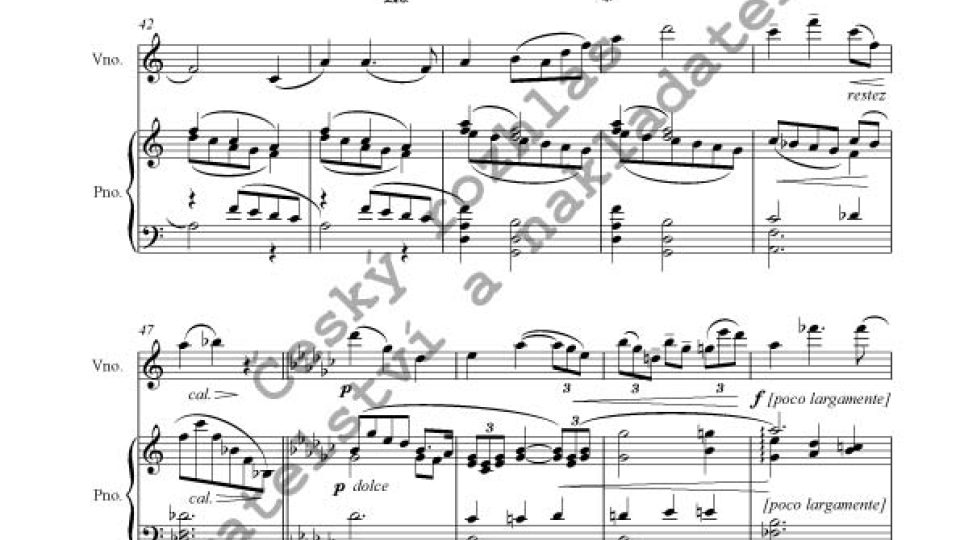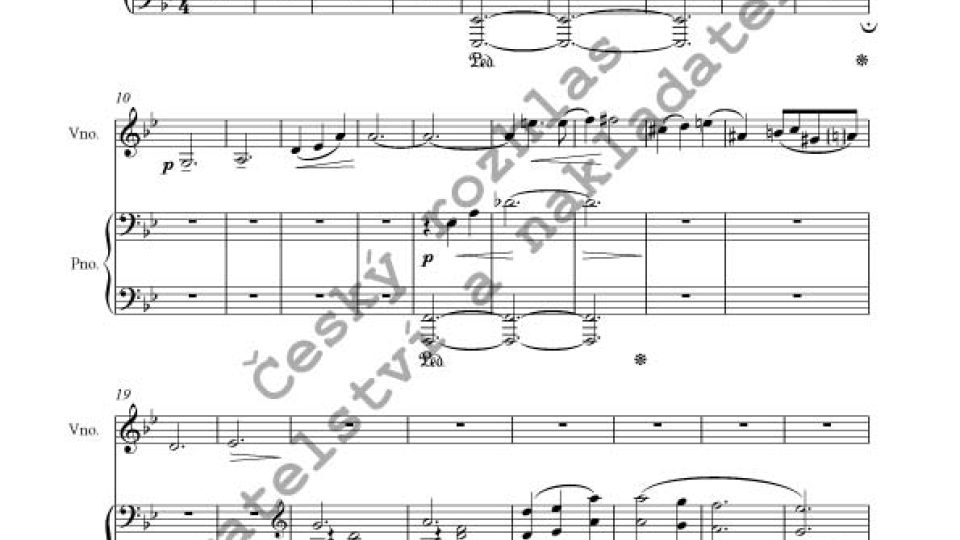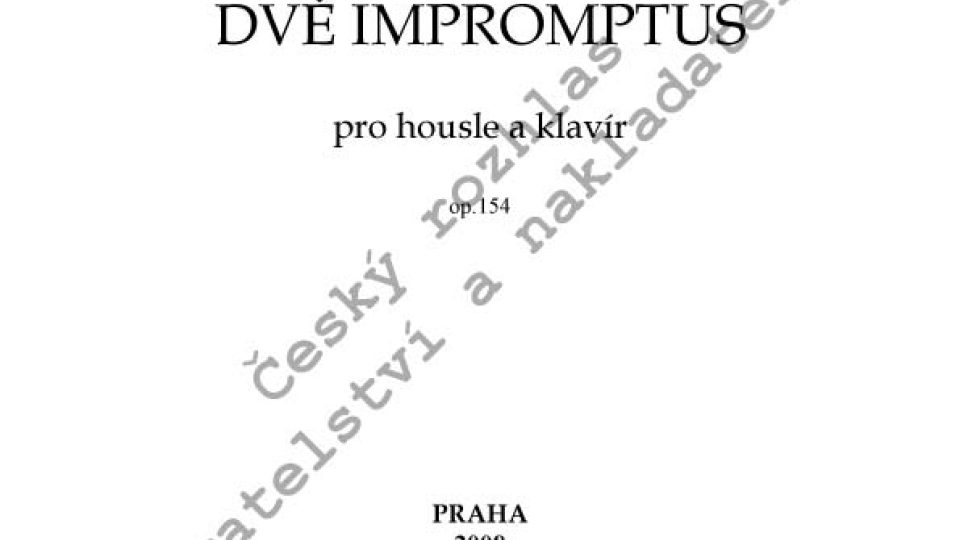Two Impromptus for violin and piano, op. 154 - Josef Bohuslav Foerster
In contrast to his two sonatas, the Suite "Princezna Pampeliška" ("Princess Dandelion"), and the Fantasy and Ballad for violin and piano, Josef Bohuslav Foerster's Two Impromptus for violin and piano op. 154 belong among the less extensive compositions within the genre of the so-called instrumental lyrics. Foerster composed these two pieces in his late years: They were written in 1934, i.e. in the year of the composer's 75th birthday. They were dedicated to Foerster's second wife, Olga Hilkenová Dostálová, whom the composer married two years later (in December 1936), after the death of his first spouse, Berta Foersterová Lautererová. Opus 154 was first published in 1942 by Hudební matice Umělecké besedy (The Music Foundation of the Patriotic Society of Artists).
Impromptus No. 1 g minor is a meditative, thoughtful composition, whose atmosphere coincides with Foerster's human and artistic nature. The emotionally well-balanced music evolving within a transparent three-part formal framework makes use of a very simple tone material: The first part (that recurs towards the end in an abbreviated repetition) begins with a wistful ascending violin motif. Following an expressive ripple in the piano the second part commences, introducing rather more animated music that - unlike the lower pitch and dark timbre of the first part - advances to the higher and brighter registers. In the Meno mosso section a vibrant violin cantilena resounds with music reminiscent of none less than Smetana. The final part returns to the sentimental tone of the initial section as well as to the darker and deeper timbres of both instruments. The whole piece, however, ends in silence in the soft and bright sound of the G-major chord.
Impromptus No. 2 c minor is of a livelier character and its structure is more varied. The rondo pattern is discernible and there are more abrupt contrasts and expressive variations within shorter passages. The ending is very energetic and brisk this time: It leads into a terse unison on C in fortissimo. An attentive listener becomes aware of an unmistakeable connection between these two compositions and Smetana's duet Z domoviny (From My Homeland). Admittedly, Foerster's pieces are shorter; yet the basic contrast in the character of the compositions and several other obvious "Smetanisms" in the very nature of Foerster's musical speech show this relation (which, of course, is not accidental - the young Foerster met Smetana in person and he was a life-long and devoted admirer of Smetana's art) very explicitly.
Other compositions by J. B. Foester published in Czech Radio:
Christmas Day Romance
Three Christmas melodramas
instrumentationvno, pftedescriptionscore, partspubl.NoR 158price190,- CZK




